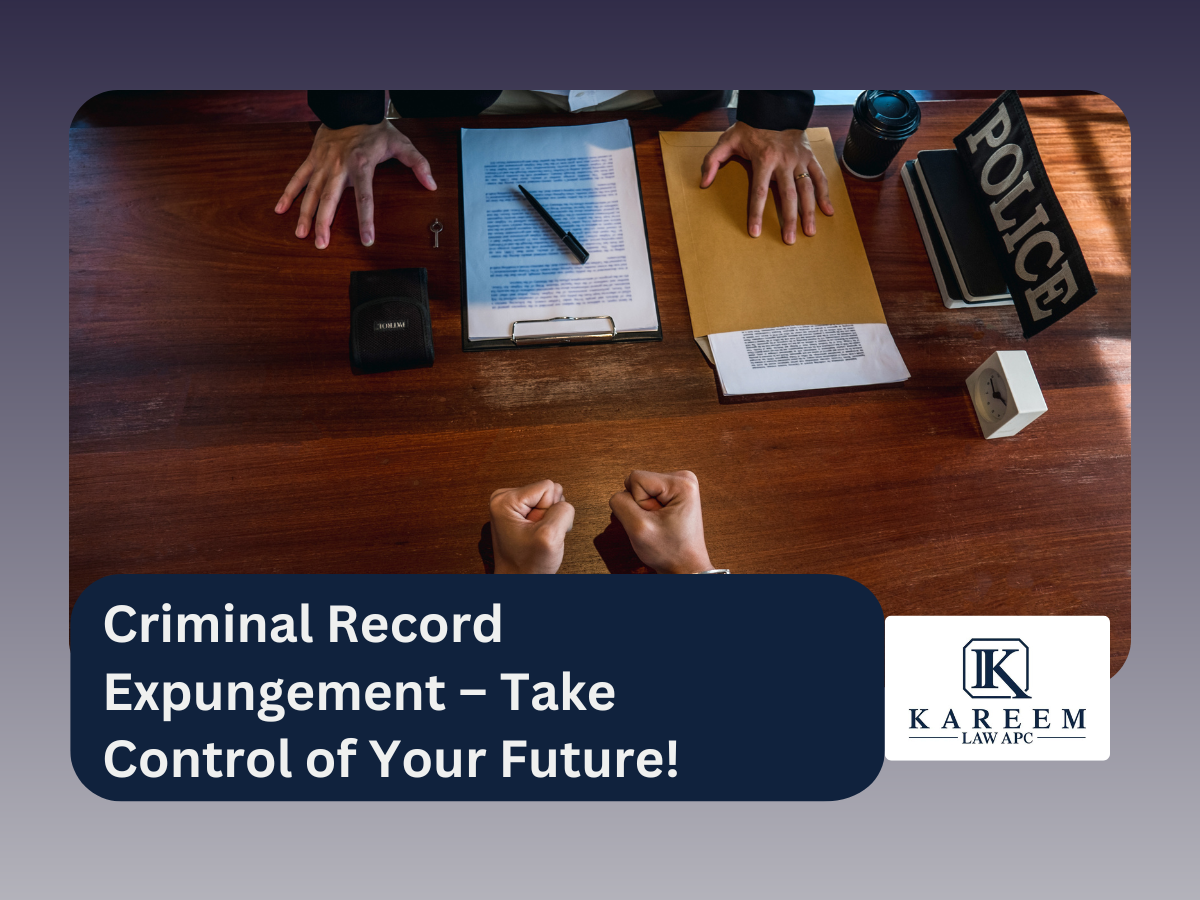Long-lasting effects of a criminal record might impair housing applications, work possibilities, school prospects, even personal relationships. If you have a past conviction, though, you might be able to have criminal record expungement in California erase your record. Expungement lets people go ahead free from the weight of past sins by legally removing or sealing a criminal conviction. Knowing the misdemeanor expungement process, eligibility requirements, and possible advantages may help you decide whether or not to seek a fresh start.
What is Criminal Record Expungement?
Expungement is the legal procedure by which a criminal record expungement is erased from a person’s record, therefore rendering their record as though the crime never happened. Once a conviction is erased in many places, it is not required disclosure on employment applications, housing applications, or background checks. Laws differ by state, though, and in some situations, erased documents can still be available to government organizations and law enforcement.
Expungement isn’t like record sealing. Although sealing limits public access but does not completely wipe the record, criminal record expungement eliminates the conviction totally. When deciding on your best line of action in your circumstances, this difference becomes crucial.
Who is Eligible for Expungement?
The type of the offense, the period since the conviction, and whether all sentence criteria have been satisfied all influence eligibility for criminal record expungement. Following are some typical eligibility requirements:
- Generally eligible are non-violent crimes and some felonies. Not eligible could be serious charges including sex offenses and violent felonies.
- Most states call for a waiting period before seeking criminal record expungement. The degree of the offense and if the person has any other convictions determine the waiting time.
- Before contemplating criminal record expungement, courts usually mandate that someone finish their sentence—including probation, parole, or community service.
- Good behavior is showing that one has stayed out of legal hot water since their conviction. Repeat offenders run less chance of criminal record expungement approval.
How to Apply for Expungement ?
Although jurisdiction determines the procedure for expungement, generally there are several important phases involved:
- Check your state’s expungement rules to be sure you qualify. Seeing a lawyer will help to clear any doubts.
- Get your criminal record from the court or pertinent agency by request. Filging your expungement petition will require these paperwork.
- Finish the expungement petition. Accurate completion of the necessary paperwork will help you to provide specifics about your conviction and the reason for your search for expungement.
- File the Petition to the Court. Send your petition to the suitable court and pay the necessary expenses. Those who qualify could be able to forgo fees.
- Attend the Court Hearing: Sometimes a court could mandate a hearing to decide whether expungement should be granted. Be ready to discuss your rehabilitation process and the reasons expungement makes sense.
- Get the court order verifying that your record has been cleared should the judge grant your expungement request.
Benefits of Expungement
Clearing a criminal record offers several bennefits that will enable people to reconstruct their life. Several main advantages include:
- Many companies investigate backgrounds before deciding to hire. With an erased record, you are legally free to say you have not been found guilty of a crime.
- Landlords often investigate potential renters’ backgrounds. Expungement takes down a major obstacle to obtaining secure, safe accommodation.
- Expungement helps some states recover rights like eligibility for professional licenses, gun ownership, and voting ability.
- Many colleges and institutions take criminal background into account while applying. Expungement raises your chances of admission into academic programs.
- Knowing that a past conviction would not show up in background checks helps one to relax and give a real sense of a fresh start.
Limitations of Expungement
Though expungement has many advantages, it is not a universal fix. Among several constraints are:
- Expunged documents might still be available to courts, law enforcement agencies, and some government offices.
- Most states do not grant expungement of federal convictions. Should your matter be prosecuted at the federal level, other legal remedies could have to be investigated.
- Certain jobs, including law enforcement and government employment, could still call for erased record disclosure.
Expungement vs. Pardon
One should be clear about expungement from a pardon. Though it is official government forgiveness, a pardon does not clear a criminal record. Although a pardon could restore some privileges, it does not clear public records of the conviction. Conversely, in most cases expungement removes the conviction from a person’s record.
Seeking Legal Assistance
While filing for expungement without a lawyer is doable, having legal assistance raises your chances of success. An educated lawyer can assist:
- Check your eligibility and counsel you on the appropriate legal paths.
- Help to compile required records and finish paperwork.
- Should it be necessary, represent you in court and fight on your side.
- Navigate difficult state laws and guarantee adherence to all legal requirements.
Conclusion
Should you have a past criminal record expungement, you are free to establish your future independent of it. Expungement offers a chance to get your record cleared so you may confidently go forward. Pursuing expungement can be life-changing whether your goals are for better employment, accommodation, or peace of mind. See a qualified California expungement lawyer to investigate your choices and start your path toward a fresh beginning right now. At Kareem Law APC, we represent the best criminal defense lawyers who have handled a wide range of cases. Get in touch with us today at (888) 506-6519!









